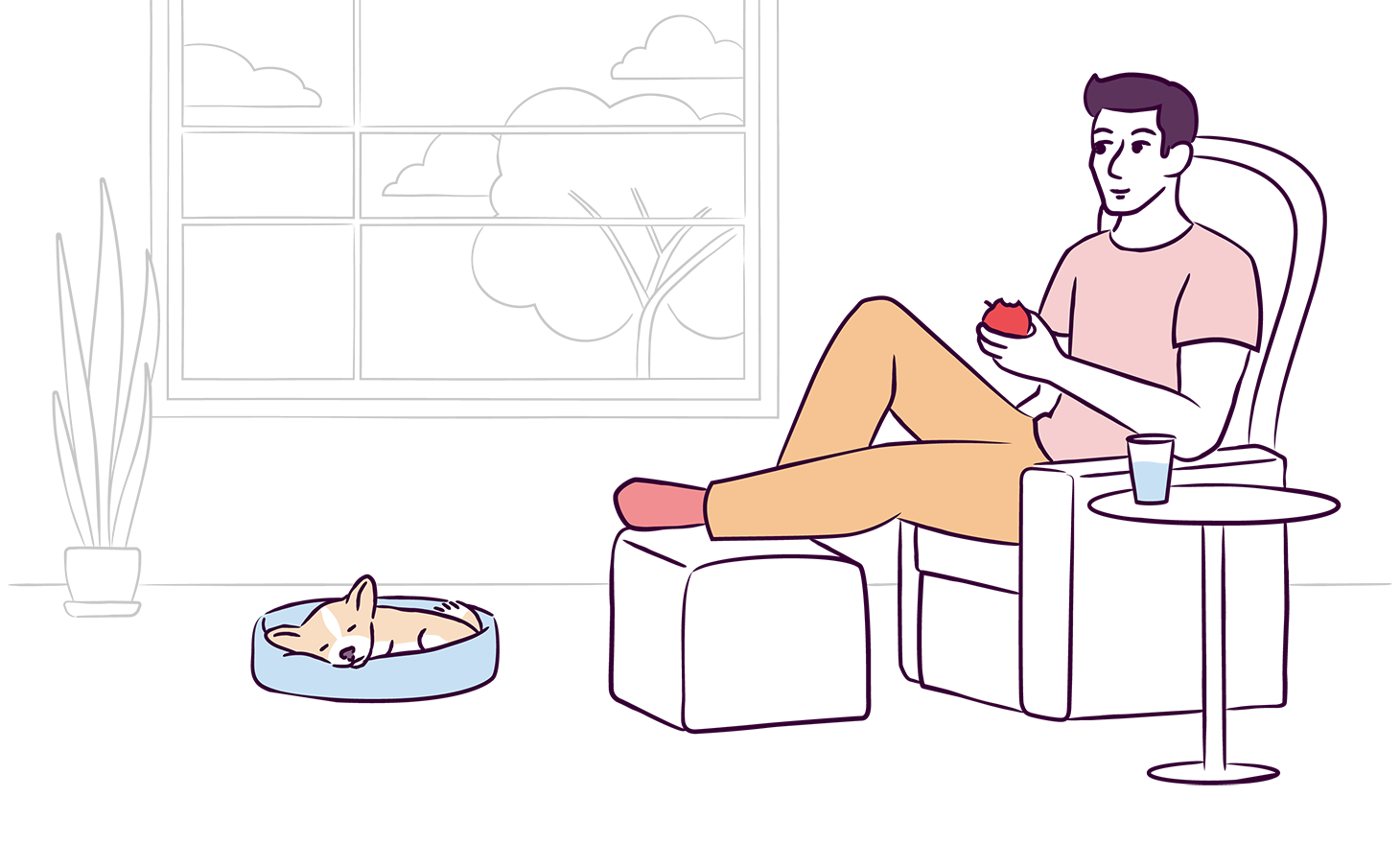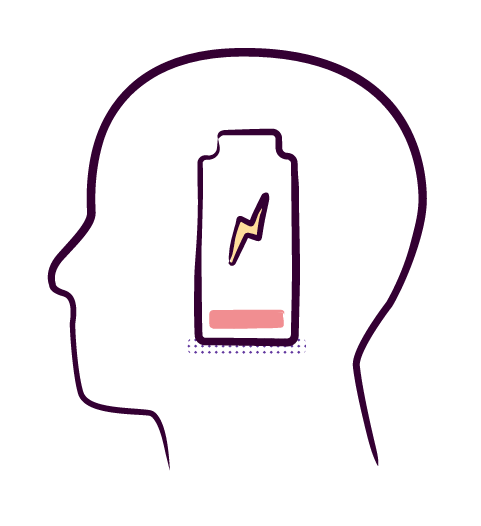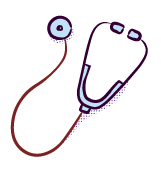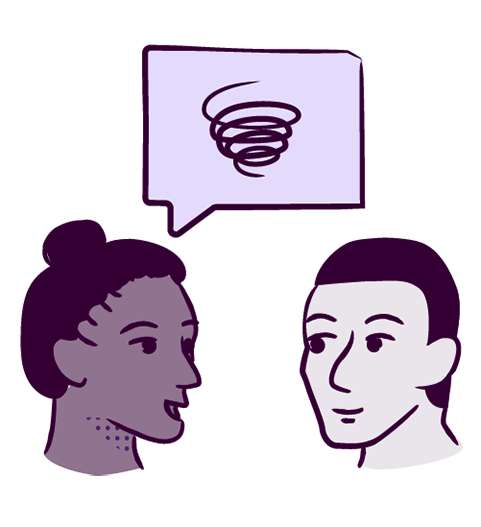
Understanding tiredness

It’s natural to feel tired when trying to keep up with work, school, relationships and other demands. Feeling tired is your body telling you that you’ve used a lot of energy and need to rest. Sometimes, even when you rest, you still feel exhausted. This type of tiredness is called fatigue. When you’re fatigued you feel like you have no energy, even for simple tasks. Feeling very tired or fatigued can affect your mood , concentration , and decision making.
If you feel you are constantly exhausted or finding it difficult to manage your tiredness, there are things you can do. On this page, you'll find services that can help you with what you're going through, plus helpful information around understanding and managing tiredness.

Are you struggling to cope?
If you’ve reached a point where you can’t deal with the loneliness or feel like there’s no way out, there is help available.
Services that can help
If you need some support, or aren't sure where to start, there are a few options available:
- Try the Head to Health quiz. It can help you understand what you're experiencing and point you to suitable services and resources.
- Call Head to Health for free on 1800 595 212 for mental health information and referral.
- Try one of the services listed below. There is a wide range of options, no matter the kind of support you’re looking for. You can choose which suits you best.

What causes tiredness
You will naturally feel tired when you engage in tasks that require a lot of physical, mental or emotional effort. If you don’t get enough rest after, this tiredness may lead to longer-term fatigue or exhaustion.
Difficulties falling asleep, staying asleep or getting enough sleep, such as when doing shift work, can all contribute to feeling tired.
Things that add extra stress on your body and mind can drain your energy and lead to exhaustion. For example, working for long or intense periods of time, caring for someone else, grieving after a loved one has died, or going through a break-up can all take a toll on your energy levels.
Even if you aren’t going through anything particularly stressful right now, you can feel exhausted if you are not looking after your health; for example, if you are dehydrated, not eating well, or not exercising. Alcohol or other drugs and some medications can also cause fatigue and tiredness.
Other causes of tiredness or fatigue include chronic health conditions, viruses, or being unwell for an extended period of time.
When does tiredness become a problem?
Tiredness becomes a problem if it persists for more than 2 weeks or affects your enjoyment of life and your ability to do the things you need to do each day. Constant tiredness can cause you to lose interest in and motivation for the things you enjoy, affect your relationships, and make it harder to achieve your goals.
Tiredness is a serious problem if it affects your safety or the safety of others. For example, your safety at work, driving, or your ability to care for someone else as a parent or carer.
You should consider taking steps if you:
- notice yourself making careless mistakes or decisions that affect the safety of yourself or others
- feel too exhausted or overwhelmed to complete routine tasks
- find it hard to get out of bed
- lack the energy or motivation to take part in activities you enjoy
- are struggling with short-term memory
- have difficulty concentrating or making decisions
- feel more irritable or impatient than normal.
Is it tiredness, burnout, or something else?
If your tiredness feels constant or overwhelming, it may be related to a more serious underlying condition. For example, high levels of fatigue can often be associated with chronic fatigue syndrome, sleep disorders, anxiety, and depression . Underlying physical health issues such as chronic pain and illness can also impact your overall mood and mental health.
Learn more about mental health conditions and disorders.

Reaching out for help
If you're concerned that your tiredness might be a sign of something more serious, or you’re finding it hard to manage, talk to your GP. If you don’t have one, you can use our Find a GP tool.
How to manage tiredness
Taking steps to look after your wellbeing can help reduce your tiredness in the long term. If you do find yourself getting tired or fatigued often, here are some things you can do.
Getting enough sleep is one of the most important things you can do to manage fatigue. Aiming for 7 to 9 hours of uninterrupted sleep can help reduce your physical and mental exhaustion. You can improve your sleep quality by practising good sleep hygiene such as avoiding electronics and stimulants before bed, reducing or cutting out alcohol or caffeine, and making your bedroom comfortable and relaxing. There are many other things you can do to improve the quality of your sleep.
Nutrition is an important part of maintaining your energy levels throughout the day. Eating well will give your brain and body the fuel they need to function and recover effectively. Try eating a wide variety of foods from different food groups, and limit foods with low nutritional value, or high saturated fat, added sugar or added salt.
Rest and leisure activities boost your energy and reduce your tiredness. But when you’ve got a lot on your plate, you may stop making space for them if you feel like you don’t have the time or energy. Scheduling these activities, even when you’re busy, can help ensure they happen.
When you’re tired it can be difficult to feel motivated about exercise. But doing any sort of physical activity can help improve your mood and reduce stress levels. Taking a few minutes to stretch, walk, or go for a run can be an effective way to improve your energy. It can improve your brain function and help you to sleep better, meaning you’ll feel more refreshed overall. There are many different ways to stay active.
Talking to someone can be a great way to put things in perspective. Telling someone about your feelings and what’s adding to your exhaustion can help you process your feelings logically. It can also give you a chance to ask for help completing tasks that you may be overwhelmed with, such as cleaning or cooking. We have helpful tips on how to start the conversation.
You can't control everything that happens in your life, but there are things you can do to get through tough times. Learn more about coping with unexpected life events.

Supporting someone else
It can be hard seeing someone you care about going through a tough time. If you're worried that tiredness is impacting their life, it's important to let them know. Check in and see how they're doing. Knowing you care about them might be all they need, or they might need your support to get help. If you're not sure where to start, we have helpful tips on practical things you can do to support someone.

Looking for more information and services?
You can browse a wider range of resources on Head to Health with our search tool.

